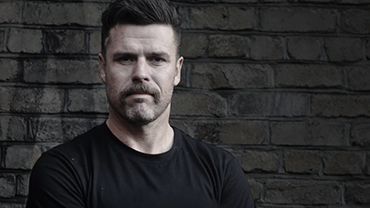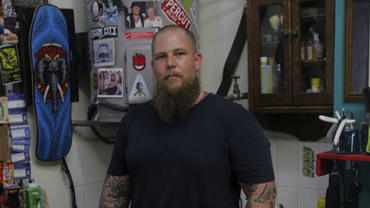Men die, on average, six years earlier than women. This makes gender the strongest and most consistent predictor of health and longevity. If men lived as long as women, there would be 800,000 more partners, fathers, brothers and sons alive in Australia today.
That’s a lot more men around to watch their kids grow up, look out for their mates especially when they’re not doing great, support their partners and look after their parents when they are older.
Today is International Men’s Day which presents us with an opportunity to consider and celebrate the contributions that men make to our society. It’s also a time to reflect on the poor state of men’s health and the number of men who are dying younger than women, for no biological reason.
In many societies, men generally enjoy more opportunities, privileges and power than women, there is no denying that.
Inequity is not something that often comes to mind when you think about men. Often we think of the social advantages those with the Y chromosome seem to have, such as earning more financially and not having to face the glass ceiling at work.
However, the reality is that this does not extend to physical health. The health outcomes of men continue to be significantly worse relative to women. Results from the Global Burden of Disease Study, revealed that the life expectancy of women exceeded that of men by approximately six years.
Think how much life could have been lived in those six years, and how partners, friends, colleagues, children and grandchildren are all impacted by this health gap.
Mental illness has also increased over the last decade for men, yet men are formally diagnosed with depression at approximately half the rate of women. Despite this, suicide rates of blokes are approximately three times higher compared to women. While there are many factors that might contribute to this, more needs to be known about the cause of these differences, and about how men experience and seek health care.
Improving the health of men ultimately impacts the wellbeing and happiness of all of us – it effects everything from a broad societal point of view, to individuals themselves.
While it’s clear there are devastating issues effecting women around the world, who in some countries are discriminated against to terrible degrees simply because they are born female, the Movember Foundation is in the unique position to be able to turn the dial in the area of men’s health.
We understand men and how to encourage them to engage with their health. We know that awareness and education alters behaviours and mindsets – it breaks down barriers, removes stigma and brings about real change.
We want men to take responsibility for their health, prevent illness by leading a healthy lifestyle and understand the signs and symptoms in both themselves and others, so they can appreciate when and how to take action when it’s needed.
The fact that women outlive men highlights why the Movember Foundation focuses on men’s health. We want to have an everlasting impact on the health of men around the world and shrink this life expectancy gap between men and women. Put simply, we want to change the fact that too many men don’t talk, don’t take action and die too young.
This Movember, on International Men’s Day, it’s time for all of us to consider how we can help change the face of men’s health. Whether you’re growing a moustache yourself, or supporting someone who is – the Mo is a great way to start a conversation that could ultimately lead to a man in your life taking action about a health issue.
Let’s begin the conversation and celebrate the significant impact men have on our lives.
Adam Garone - CEO and Co-Founder, Movember Foundation
Donate today

18 November 2015
Men die, on average, six years earlier than women. This makes gender the strongest and most consistent predictor of health and longevity.
The gender inequality no one's talking about
3 MIN READ



.png)










